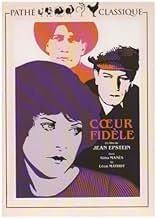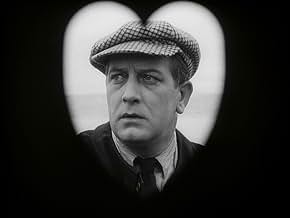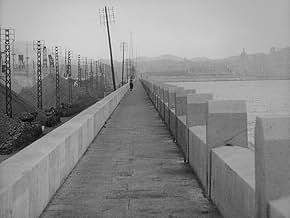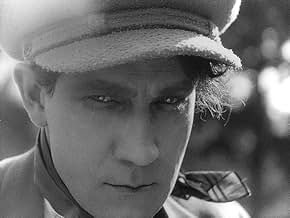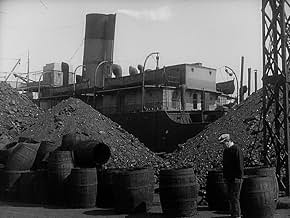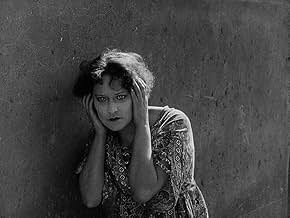अपनी भाषा में प्लॉट जोड़ेंMarie wants to escape from her job and also from her lover, Paul, an unemployed drunk. She dreams of going off with Jean, a dockworker. The two men quarrel and fight over Marie on two occasi... सभी पढ़ेंMarie wants to escape from her job and also from her lover, Paul, an unemployed drunk. She dreams of going off with Jean, a dockworker. The two men quarrel and fight over Marie on two occasions, but Paul retains a hold over her. Marie has a baby who falls ill and as time goes on ... सभी पढ़ेंMarie wants to escape from her job and also from her lover, Paul, an unemployed drunk. She dreams of going off with Jean, a dockworker. The two men quarrel and fight over Marie on two occasions, but Paul retains a hold over her. Marie has a baby who falls ill and as time goes on Jean and a crippled neighbor try to help the child. Paul nearly causes the death of the ch... सभी पढ़ें
फ़ीचर्ड समीक्षाएं
It's a rarity movie critics have such an influence on the future of cinema while applying their theories to actual motion picture making. Polish-born/French resident Jean Epstein was part of that rare breed of observers and innovators in film. The writer composed several highly-influential articles focused primarily on the visual forms in cinema. Epstein expanded the idea of 'photogenie,' a term used as early as 1874 to define photography that contained more art than just simple portraits or landscapes. By inserting an aesthetic priority into movies, Epstein articulated the separation between the auteur and the more straight-forward fillmmakers' in the metteurs-en-scene camp.
Epstein knew the practice of filming stage plays in their entirety and presenting them on the big screen was not taking advantage of what cinema had to offer. He frowned upon the heavily-laden, overly-complex plots the film industry was producing; he favored the more visual, simple narratives. Camera placements where movement takes place, especially positioned in areas such as he did on a merry-go-round, plays a part in photogenie. He especially emphasized the close-up as an integral element in his philosophy. He claimed there is none greater movement than framing a close-up of the movie's characters where faces can express their inner emotions and souls. No finer example of Epstein's point is the finale of Segio Leone's 1966 'The Good, the Bad and the Ugly,' where the three combatants in a circle are seen in extreme closeups before shooting.
Epstein's numerous articles were eagerly read by filmmakers home and abroad. 'The Senses,' 'Magnification,' 'On Certain Characteristics of Photogenie' among others helped define the uniqueness of cinema and its artistic merits. He was especially impressed by Abel Gance's 1922 'La Roue' with its rhythmic montage of quick cuts following the opening train crash. Epstein's explanation on the varying short edits anticipated Soviet Union's Sergei Eisenstein's work on montage editing.
Epstein was unusual in that he possessed the ability to not only express deep intellectual treatises on cinema's uniqueness, but was able to display his theories on screen. His November 1923's "The Faithful Heart"-"Coeur fidele" in French-illustrates the critic's written statements on film. He claimed he and his sister drew up its simple plot in one night. Their narrative served the purposes Epstein had in mind, where "a melodrama so stripped of all the conventions ordinarily attached to the genre, so sober, so simple, that it might approach the nobility and excellence of tragedy." The story deals with an orphan adopted by a bar-owner and is an object of love by a lazy thug. Counterbalancing the undesirable Petit Paul is a hard-working dockworker, Jean, whom Marie, the orphan, loves. Through a series of fights, Petit Paul and Jean vie for Marie, who is swept by the tide of one, then by the other. Epstein's realistic display of the gritty Marseille France docks and the sordid surroundings of the trio's were inspirational to future French directors such as Jean Vigo and Marcel Carne.
Epstein's script was probably inspired by the novelists from the nineteenth century,probably Victor Hugo and Emile Zola.Marie is nobody's child:she was brought up by a shrew and her husband who never showed some affection to her:she is akin to Cosette or Fantine in "les Miserables ".Petit Paul seems to come from Zola's "L'Assommoir" the seventh volume in the Rougon-Macquart saga.
Marie and Jean are unfortunate lovers ;Jean is a good man,in the noblest
sense of the word .Epstein's closest relative in the cinema field is Frank Borzage in "Coeur Fidele",with whom he shares the same fascination for the fair and the merry-go-rounds (see "little man what now?") Like Abel Gance ,Epstein was a pioneer: the scene on the fairground has a sense of madness which makes the viewer dizzy ;it predates Hitchcock's experimentations in "Strangers on a train" by thirty years.For that scene alone,the movie would be essential viewing;with the addition of another extraordinary scene when the crippled girl,whose crutch has been crushed by a car crawls all along the way to save her friends,it becomes a major twenties French classic.
The cast give fabulously adept performances capturing the strong emotions of the tableau, and ably passing on the same airs to the audience. Edmond Van Daële is unexpectedly unsettling as antagonistic Petit Paul, while the conflicting feelings of love, sadness, and determination weighing on Jean are given vivid life by Léon Mathot. I dare say Gina Manès rather outshines the both of them, inhabiting beleaguered Marie with a haunted expression and comportment that tugs fiercely on one's heartstrings. Not to count out any other part of these 87 minutes, but it's hard not to be especially impressed with the carnival sequence in the first half. I say this in part recognizing the power of the acting, but especially in light of the exquisite editing that helps this to be an a tremendous example early in the medium's history of scenes of merriment utilized to spotlight and indeed amplify a predominant dark mood. It can't be overstated what brilliance this scene demonstrates, which naturally reflects superbly on Epstein - and even at that, no part of the whole is truly any lesser.
The tale is just as engrossing in the second half as it turns even more dour, and the strength of every contribution remains just as vibrant. I can only repeat that the cast is great; as both director, and co-writing with his wife Marie (also capably co-starring in a smaller but pivotal supporting role), Epstein orchestrates shots and scenes - ever taking utmost advantage of those techniques noted above - that ensures every ponderous beat of the drama lands with all the force and impact that it can and should. Meanwhile, even the hair, makeup, and costume design lend considerably to the severity of the atmosphere, let alone the production design, art direction, and filming locations. Illustrating such round excellence, a moment in which Jean simply climbs a flight of stairs shows a level of care, ingenuity, and expertise that's plainly gratifying (as if anything herein did not provide ample like illustration). From top to bottom 'Coeur fidèle' is rather terrifically well made, and extra smart about every choice in its craftsmanship. Not least considering how magnificently well the title has been preserved in the past 100 years, frankly what ultimately comes across is that this matches or surpasses many of its contemporaries in every capacity, with outstanding detail in every way.
Before I sat to watch I surely expected that I'd enjoy this; I love silent movies. Still I'm downright enchanted with how stupendous it all is. Exceptional writing, direction, editing, camerawork, and acting, and all the fine work of those behind the scenes, result in an immensely absorbing drama that is much more than what it seems from the outside looking in. Every constituent element in and of itself makes this 1923 feature worth watching; taken all together, the sum total is exemplary. I can understand why early cinema doesn't appeal to all viewers, and I'd have said the same of myself at one time. 'Coeur fidèle' boasts a striking vitality, however, that far outshines whatever issues one might perceive with the standards of the time. Truthfully, it's even better than I could have hoped; from the unassuming beginning through to the suspenseful climax and a balanced, surprisingly thoughtful ending, I'm quite of the mind that this is outright masterful for its exhibition of film-making and story-telling prowess. It might take a bit of work to find this to watch, but if you're a fan of the silent era, this is more than worth the effort.
क्या आपको पता है
- ट्रिवियाThe director of the film, Jean Epstein said he chose to film a simple story of love and violence "to win the confidence of those, still so numerous, who believe that only the lowest melodrama can interest the public", and also in the hope of creating "a melodrama so stripped of all the conventions ordinarily attached to the genre, so sober, so simple, that it might approach the nobility and excellence of tragedy."
- कनेक्शनFeatured in Trente ans de silence: Gina Manès (1965)
टॉप पसंद
- How long is The Faithful Heart?Alexa द्वारा संचालित
विवरण
- चलने की अवधि1 घंटा 27 मिनट
- रंग
- ध्वनि मिश्रण
- पक्ष अनुपात
- 1.33 : 1
इस पेज में योगदान दें


